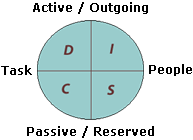Successful organizations are filled with motivated employees from the top down. Motivating employees is one of the key tasks of an effective manager, but all too often, managers err in their efforts to motivate employees.
Following are 10 practices to avoid in order to maintain a productive, motivated workforce:
Don’t just reward results – Often times, the employee who closes the sale, secures the client, or meets the company goal has had a long line of behind-the-scenes coworkers who carved the way toward success. At the same time, some employees are assigned more difficult clients and tasks than others. Be sure to regularly offer praise and rewards for efforts across the company and along the path to success so that employees continue to want to be productive.
Don’t make praise the only reward – While praise and expressions of appreciation are excellent motivators, they only go so far. When employees receive a tangible reward, they and their coworkers notice and get excited. Furthermore, rewards can and should come in all shapes and sizes. Taking an employee out for lunch, offering them a day off, or giving them a gift card are fun, affordable ways to honor employees. Rewards should remain interesting and fitting to the efforts made.
Don’t offer external-only rewards – While money talks, studies show that employees are much more highly motivated by a sense of self-worth than they are by money. In fact, employees who are paid too highly for their work typically have lower performance outputs than people in similar positions at a lesser salary range.
Don’t be stingy – On the other hand, bitterness and frustration result when employees are not appropriately compensated for their efforts. Ensure that employees are truly making what they are worth to ensure continued motivation and productivity.
Don’t delay feedback – Multiple studies on feedback prove that immediate feedback increases motivation because people automatically understand the cause and effect relationship between actions and results. Employees who receive consistent and constructive feedback are more goal-oriented and productive.
Don’t focus on mistakes – If an employee makes more mistakes than successes, it is likely that employee is not a good fit for an organization. But focusing on small errors and mistakes rather than overall successes will lead to a lack of confidence, a lack of motivation, and ultimately a lack of productivity.
Don’t be predictable – Employees are motivated by opportunities to be creative, learn and grow. A sense of accomplishment and the ability to take a new or fresh perspective keeps work interesting for employees, and interesting motivates people to work.
Don’t forget to be human – One of the greatest motivating factors for people is knowing that they are cared for. Employees are highly inspired to work for people who care about those things that matter beyond the work day. Know the names of employees’ significant others, and ask about them. If an employee isn’t performing to the standards expected, don’t ridicule without stopping to ask what help they might need, or what might be affecting performance.
Don’t impose too many structures and rules – This especially applies when it comes to how a task is completed. Telling people how to complete their job disables the ability to operate in the freedom and comfort of their own aptitudes and styles. When you take a way freedom, you demotivate.
Don’t create an atmosphere of fear – Lastly, companies who instill fear among employees often have significant turnover rates. People want to experience happiness and joy as they contribute to a company, and fear has the opposite effect on people, thus creating less drive to complete tasks.


